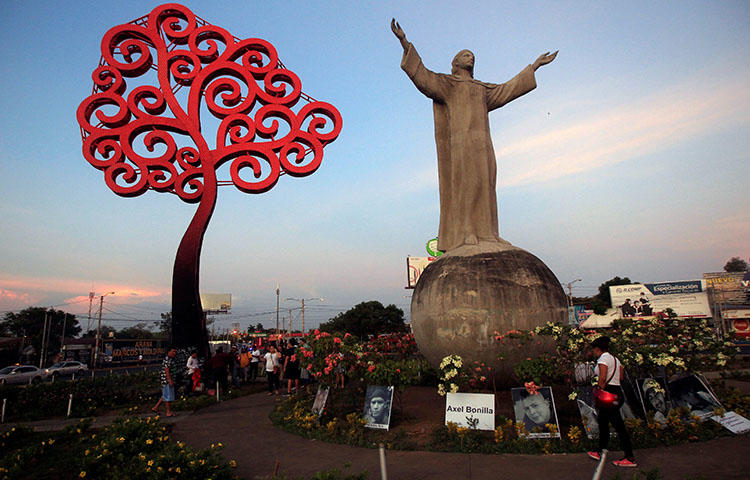New York, April 24, 2018–Nicaraguan authorities should investigate journalist Ángel Eduardo Gahona’s death and ensure that reporters can do their work without fear of violence or censorship, the Committee to Protect Journalists said today. Gahona, the director of the local, independent television program El Meridiano, was fatally shot on April 21 while covering protests against pension reforms that have left at least two dozen dead including police and demonstrators, according to news reports.
The journalist was reporting via Facebook Live on a damaged ATM outside the mayor’s office in the eastern port city of Bluefields when he was shot and killed, according to news reports. A video of the protests shared by the Nicaraguan newspaper La Prensa shows Gahona approaching the ATM and describing the damage to the glass doors before being shot and collapsing to the ground with blood on his face.
“Nicaraguan authorities must immediately conduct a transparent investigation into the killing of Ángel Eduardo Gahona,” said CPJ Program Director Carlos Martínez de la Serna. “Independent journalists in Nicaragua should not pay the ultimate price for informing people about issues of national importance.”
Ileana Lacayo Ortíz, a journalist and activist in Bluefields who helped organize the original march and was near Gahona when he was shot, told CPJ it was difficult to tell who had fired at him, but believed it was the police. “I didn’t see any of the youth with a gun,” Lacayo told CPJ. “It had to come from the police or riot police.”
Suyen Sánchez, a radio reporter with the Radio Unica station in Bluefields who often worked with Gahona, told CPJ this was all “speculation” and that authorities had not yet released any official statement on the case.
When CPJ called the Bluefields police station, the officer who answered said there was no official police comment and she was not authorized to speak about the case.
Gahona’s wife Migueliuth Sandoval, who worked with him as a reporter for El Meridiano, told CPJ that her husband left home around 5:00 p.m. on April 21 to cover protests that continued after an anti-government march organized by local activists ended.
Sandoval said that she and her husband decided he should broadcast the police and protester confrontations via Facebook Live because local television channels were being censored or disconnected by the government. Nicaraguan authorities have cracked down on coverage of the protests and independent media outlets, censoring news broadcasts and blocking television broadcasts, as multiple journalists have been injured while covering the protests, CPJ has documented.
El Meridiano, which covered news from the region, aired every weekday from 6-7 p.m. on a local television station and via social media streams, Sánchez told CPJ. She said that the program has run for more than a decade and was one of the most popular and trusted news programs in the city.
The radio reporter and Sandoval said separately that they had never heard Gahona mention any threats against him in their years of working together, but that local journalists were concerned about potential violence with the escalating protests.
